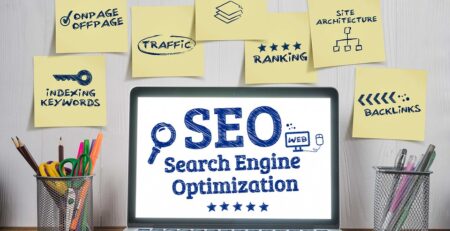When it comes to SEO, most digital marketers are well-versed with the traditional on-page factors such as keyword optimization, meta tags, and content quality. However, there are several other on-page SEO factors that are often overlooked but can significantly impact your search engine rankings. In this article, we will delve into some of these unrealized on-page SEO factors that have the potential to skyrocket your rankings and drive organic traffic to your website.
1. Page Loading Speed
One of the most critical yet underrated on-page SEO factors is page loading speed. Google has explicitly stated that page speed is a ranking factor, and it directly impacts user experience. A slow-loading website can lead to higher bounce rates and lower user engagement, which in turn can negatively impact your rankings. To improve your page loading speed, you can optimize images, enable browser caching, and leverage content delivery networks (CDNs) to distribute your content across multiple servers.
2. Mobile-Friendly Design
In today’s mobile-first digital landscape, having a mobile-friendly website is no longer an option—it’s a necessity. Google’s mobile-first indexing algorithm prioritizes mobile-optimized websites, and having a responsive design can significantly boost your rankings. Make sure your website is responsive across all devices and screen sizes, and consider implementing accelerated mobile pages (AMP) to enhance the mobile user experience.
3. Internal Linking Structure
Internal linking is another often overlooked on-page SEO factor that can improve your website’s search engine visibility. By strategically interlinking your pages, you can pass link equity throughout your website and improve the crawlability of your content. Additionally, internal linking can help search engines understand the relevance and hierarchy of your pages, leading to better rankings for your target keywords.
4. User Engagement Metrics
While user engagement metrics such as bounce rate, time on page, and click-through rate are not direct ranking factors, they indirectly impact your search engine rankings. A website with high user engagement signals indicates to search engines that your content is valuable and relevant to users, which can lead to improved rankings over time. To boost user engagement, focus on creating high-quality, engaging content that keeps users on your website for longer durations.
5. Schema Markup
Implementing schema markup on your website can provide search engines with additional context about your content, leading to enhanced search result listings and increased click-through rates. By using schema markup, you can highlight important information such as product details, reviews, and event dates, which can make your search results more visually appealing and informative. This can result in higher organic click-through rates and improved rankings for your website.
Conclusion
While traditional on-page SEO factors are crucial for optimizing your website for search engines, it’s essential to also consider the often overlooked on-page SEO factors mentioned in this article. By paying attention to page loading speed, mobile-friendly design, internal linking, user engagement metrics, and schema markup, you can elevate your website’s search engine rankings and drive organic traffic to your website. Incorporating these unrealized on-page SEO factors into your SEO strategy can make a significant difference in your website’s visibility and online success.
FAQs
Q: How do user engagement metrics affect rankings?
A: User engagement metrics such as bounce rate, time on page, and click-through rate indirectly impact search engine rankings by signaling to search engines that your content is valuable and relevant to users. Websites with high user engagement metrics are more likely to rank higher in search results over time.
Q: What is schema markup, and how does it impact SEO?
A: Schema markup is a structured data format that provides search engines with additional context about your content. By implementing schema markup, you can enhance your search result listings with rich snippets, leading to increased click-through rates and improved rankings for your website.
Q: Why is page loading speed important for SEO?
A: Page loading speed is a critical on-page SEO factor that directly impacts user experience and search engine rankings. A slow-loading website can lead to higher bounce rates and lower user engagement, which can negatively impact your rankings. Improving your page loading speed can lead to better search engine visibility and organic traffic.











Leave a Reply